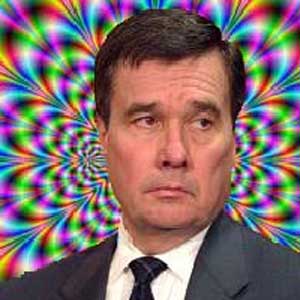Drug Czar Being Disingenuous and Evasive. No Kidding.
By Bob Humphreys
At the Center for American Progress on May 1, Drug Czar Gil Kerlikowske answered a question from MPP’s Steve Fox regarding marijuana prohibition. Or did he? What Steve essentially asked is that if a great many Americans use both marijuana and alcohol, and alcohol causes disease, violence and death while marijuana is not responsible for any of these problems, why are there laws prohibiting the use of marijuana, if alcohol is legal?
Now, with the exception of some brief gibberish about alcohol prohibition, the issue of allowing a harmful substance (alcohol) to be legally consumed by adults while outlawing a harmless substance (marijuana) was completely ignored. What was addressed, however, was the issue of prescription drugs.
The drug czar argued that there is no reason to tax, regulate, and control marijuana because legal prescription drugs take over 15,000 lives a year, saying, “we do a very poor job of keeping them out of the hands of abusers and young people.” This is interesting for several reasons, the first of which being that marijuana has not been responsible for any deaths in recorded human history. Also, medical marijuana patients are able to substitute marijuana for many of the dangerous prescriptions Gil is talking about, thereby minimizing their risk of becoming one of the 15,000 killed each year by legal prescription medications.
Another reason for skepticism, and probably the most obvious: why should responsible users of a harmless substance be penalized because the ONDCP is bad at its job? By keeping marijuana illegal, Gil and the Obama administration are giving drug dealers and cartels responsibility for deciding who can and cannot buy marijuana instead of an objective system of regulation, and to be honest, I’ve never heard of a drug dealer who checked IDs.
This kind of doubletalk is disrespectful to both the audience and the American people. If someone cannot be trusted to be honest enough to answer a simple question, how can that same person be trusted to make decisions that impact the lives of private citizens?









